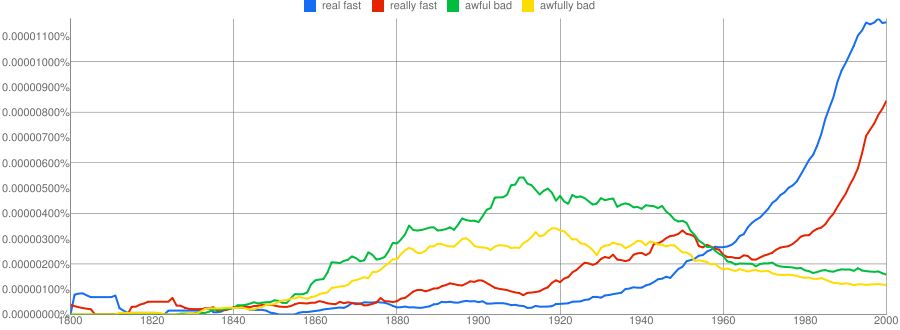In Southern US English, adverb forms are almost always replaced by their adjective forms. For example:
The journey was awful long.
He's running real fast.
He ran to the store quick.
He plays tennis good.
This seems something unique to Southern US English. What dynamic is there in that region that has resulted in this loss of a distinct adverb and adjective?

